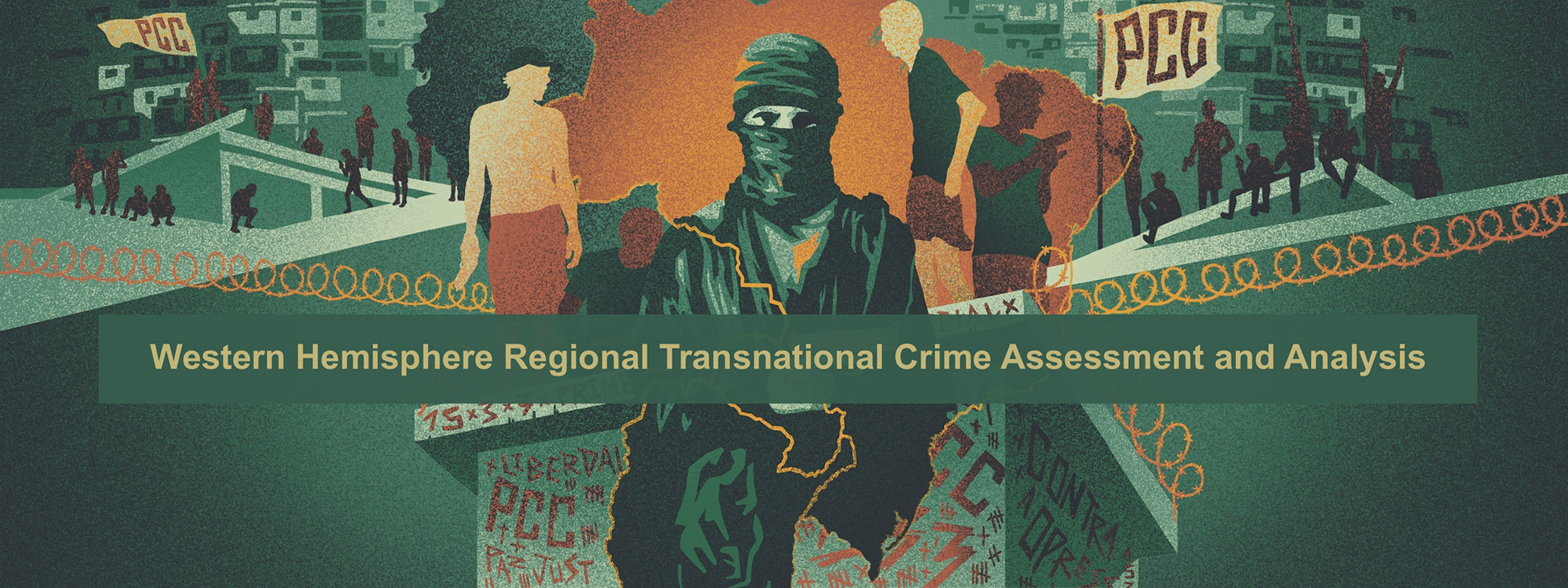You are here: American University Centers Latin American and Latino Studies Western Hemisphere Regional Transnational Crime Assessment and Analysis

In recent decades large-scale criminal networks have emerged as threats to good governance, the rule of law, and human and environmental flourishing throughout Latin America and the Caribbean. Criminal groups have embedded themselves deep into local political and economic life, and in some cases become powerful national actors, integrating themselves into established businesses and political parties. Their modes of organization and operation have also evolved, and they have developed their own mechanisms to launder illegal proceeds and promote their interests. Gone are the hierarchical, top-down structures that once characterized the region’s most powerful transnational criminal organizations, now replaced by elaborate, multi-national networks that flexibly overlap and connect to ensure the delivery of illicit products to market. The growing sophistication and reach of these criminal organizations have led to the diversification of criminal economies and portfolios, presenting new challenges for U.S. policymakers to confront as they work with regional counterparts.
The drug trade remains a primary source of revenue for the largest regional criminal networks. Other criminal economies, however, have grown along with local drug markets: sophisticated bank and bank transport robberies; extortion and kidnapping; human trafficking and smuggling networks; contraband electronics and consumer goods like tobacco and pharmaceuticals; environmental crimes, such as illegal land-clearing, logging, trafficking in exotic species, and illegal mining; and virtually any other good from which an organized criminal group can garner profits. Much of the criminal infrastructure once set up to service the drug trade now provides the channels and tools employed by a wide array of other criminal interests and illicit economies.
With a grant awarded by the U.S. Department of State, CLALS has launched a one-year project to assess, analyze and classify the diverse criminal networks in Latin America and the Caribbean. This project will undertake to explain how these organizations have evolved in the last two decades, and how they may mutate in the future. It will analyze and map criminal networks with attention to such factors as: structure, core leadership, identity, economic strength, state penetration, use of force, criminal contacts and alliances, territorial presence and reach, criminal governance, longevity, and connections between criminal groups and across markets, among others. It will also assess state efforts to interdict these networks and offer specific recommendations regarding how to move forward to reduce the power and capacity of criminal groups across the region.
This project is a collaboration between CLALS and InSight Crime, a non-profit journalism and investigative organization hosted by CLALS and with an office in Medellín, Colombia, that specializes in organized crime in Latin America and the Caribbean. This initiative is led by AU School of International Service Associate Professor, Matthew Taylor, and InSight Crime Co-Director Steven Dudley.